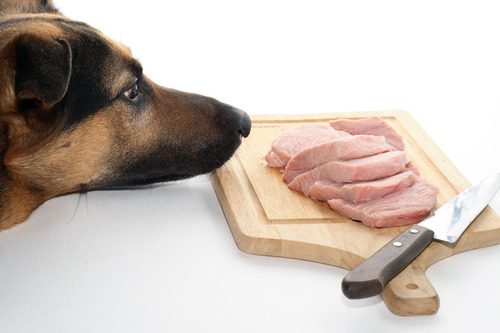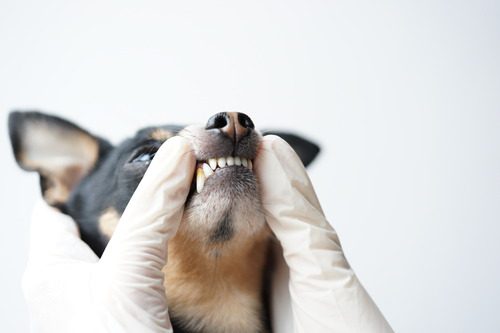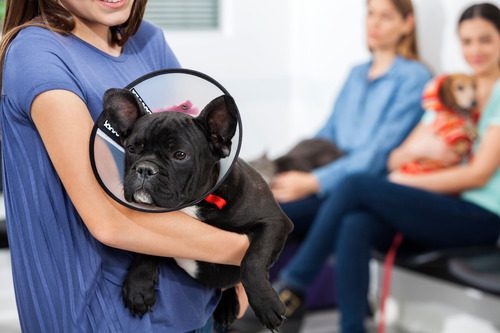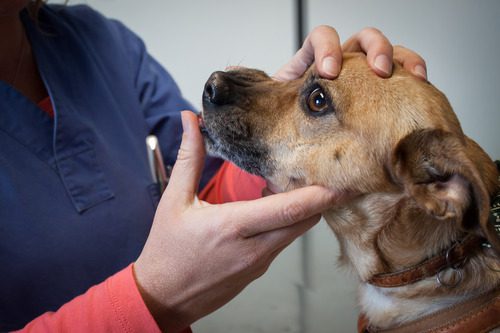Can Dogs Eat Ham?
Many pet owners wonder about the safety of sharing human foods with their pets, and ham can be a topic of debate. Ham is a popular meat, and though it can be tempting to share with your dog, you should know the potential risks and benefits associated with it. If you have questions about your dog’s diet, call Cornerstone Veterinary Hospital of Clifton Park at (518) 383-6254.

Is Ham Safe for Dogs?
Ham is not an ideal choice for dogs. Ham is high in fat and sodium, which can lead to health issues for dogs. While a small piece of ham might not cause immediate harm, regular consumption can result in serious health complications. High-fat content can cause pancreatitis, a painful and potentially life-threatening condition. Additionally, the high sodium levels in ham can lead to excessive thirst, urination, and even sodium ion poisoning.
Potential Health Risks of Feeding Ham to Dogs
Feeding ham to your dog can come with various risks to their health and well-being.
High Fat Content
Dogs that consume fatty foods like ham can develop pancreatitis, an inflammation of the pancreas. This condition can cause symptoms such as vomiting, diarrhea, abdominal pain, and lethargy. In severe cases, pancreatitis can be life-threatening and require emergency veterinary care.
High Sodium Levels
Excessive sodium intake can cause increased thirst and urination, leading to dehydration. In severe cases, it can cause sodium ion poisoning, which manifests as vomiting, diarrhea, tremors, and seizures. Long-term consumption of high-sodium foods can contribute to the development of kidney disease and hypertension in dogs.
Additives and Preservatives
Processed ham often contains additives and preservatives like nitrates and nitrites, which can be harmful to dogs. These chemicals are used to enhance the flavor and shelf life of ham but can be toxic to dogs. Consumption of these substances can lead to gastrointestinal upset and other health issues.
Are There Any Benefits to Feeding Ham to Dogs?
Ham is a source of protein, which is essential for a dog’s muscle development and overall health. However, there are many other healthier and safer protein sources for dogs that do not carry the same risks as ham. If you decide to give your dog a small piece of ham, make sure it is plain, unseasoned, and free from additives. Always monitor your dog for any adverse reactions and consult your veterinarian if you have any concerns.
Healthier Alternatives to Ham
There are healthier alternatives to ham that provide the necessary nutrients without the associated risks. Some of these alternatives include:
- Chicken: A lean source of protein that is easy to digest.
- Turkey: Another lean protein source that is low in fat.
- Beef: Provides essential amino acids and nutrients.
- Fish: Rich in omega-3 fatty acids, which are beneficial for a dog’s skin and coat health.
When choosing protein sources for your dog, select plain, cooked meats without any seasoning or additives.
What to Do if Your Dog Eats Ham
If your dog accidentally consumes ham, monitor them closely for any signs of distress. Symptoms of pancreatitis, sodium ion poisoning, or gastrointestinal upset can develop, and it is important to act quickly if your dog shows any signs of illness.
Signs to Watch For
- Vomiting
- Diarrhea
- Lethargy
- Abdominal pain
- Excessive thirst and urination
- Tremors or seizures
Consult Your Veterinarian for Dietary Advice
When it comes to your dog’s diet, it is always best to consult your veterinarian. At Cornerstone Veterinary Hospital of Clifton Park, our team can provide personalized recommendations based on your dog’s specific needs and health conditions. Your veterinarian can also suggest safe and healthy treats that you can offer your dog without compromising their health.
High fat and sodium content, as well as harmful additives, make ham a less-than-ideal choice for dogs. Instead, opt for healthier protein sources that provide the necessary nutrients without the associated risks. At Cornerstone Veterinary Hospital of Clifton Park, we are here to support you in making the best dietary choices for your pet. If you have any questions or concerns about your dog’s diet, please call us at (518) 383-6254.
Recent Posts
Dog Tooth Abscess Burst: What to Do
Dog Tooth Abscess Burst: What to Do You’re petting your dog and notice swelling near their muzzle,…
Infected & Swollen Spay Incision in Dogs
Infected & Swollen Spay Incision in Dogs When your dog undergoes a spay procedure, you expect her…
Dog Tooth Decay Stages
Dog Tooth Decay Stages Dental disease is one of the most common health problems seen in dogs…
About Us
Originally opened as Animal Care Hospital by Dr. Mark Johnston in 1989, the hospital became Cornerstone Veterinary Hospital in 2015 when it was purchased by Drs. Alan and Lisa Knott. The name 'Cornerstone' holds a special place in their hearts, representing not only their Christian faith but also their commitment to being the cornerstone of the community in which they practice. As a family-owned and operated practice, every pet is treated as part of the family, ensuring they receive the highest standard of care. The team at Cornerstone Veterinary Hospital is dedicated to building lasting relationships with clients and their beloved pets, striving to be the cornerstone of the community in which they practice.



